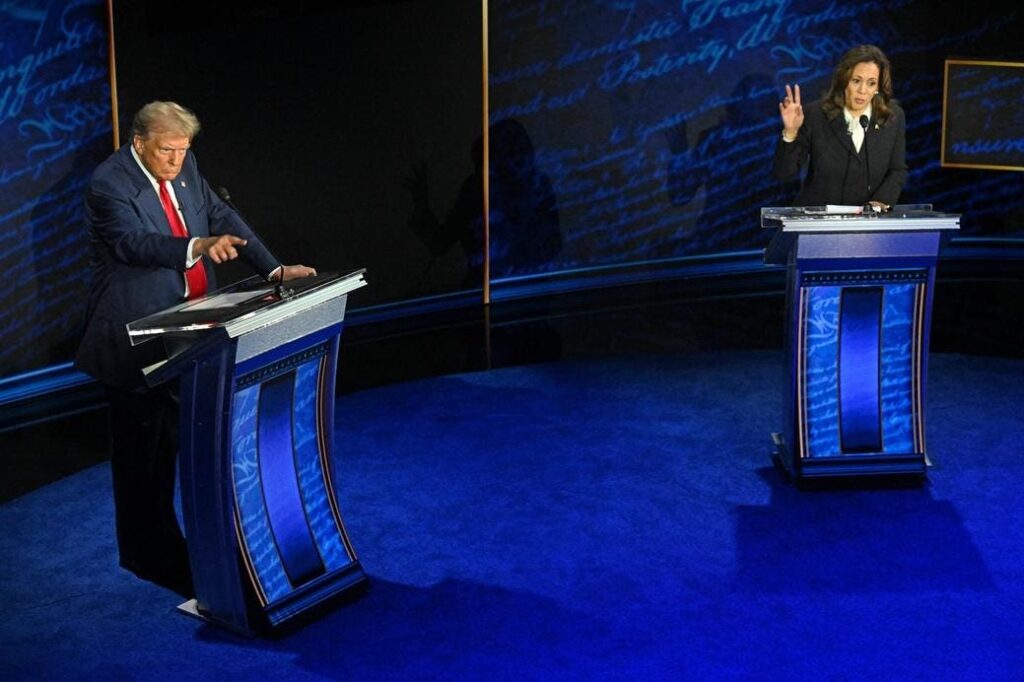Recent polling conducted by UBS has revealed that wealthy investors are largely leaning towards Vice President Kamala Harris over former President Donald Trump for the upcoming presidential election in 2024. The survey, which canvassed 971 individuals with at least $1 million in investable assets, shows Harris leading Trump in general voter support, particularly among Independents, where she holds a 60% to 40% advantage. Notably, Trump does have a lead among business owners, suggesting that different demographics within the investor class may prioritize varying issues and candidates based on personal and economic interests.
The participants in the UBS survey identified their political affiliations as 38% Republican, 34% Democrat, and 26% Independent. These numbers contrast somewhat with broader demographic data from Gallup, which shows a slightly lower percentage of Republicans and a higher percentage of Independents in the general U.S. population. The survey’s findings on the preferences of wealthy investors suggest that economic sentiment and individual investment experiences may heavily influence their political choices ahead of the election.
Echoing sentiments from respondents, the state of the economy is a significant factor influencing voter sentiment, with 84% listing it as the top issue in the upcoming election. The optimism among these investors about the stock market’s performance in the coming months is considerably higher than it was during the tumultuous economic environment of 2020, marked by the impacts of the COVID-19 pandemic. This indicates that economic recovery may shape voters’ perspectives significantly in this election cycle, potentially favoring candidates like Harris, who are perceived to be focused on stability and growth.
When discussing specific policies, Harris is viewed favorably regarding Social Security, with 54% supporting her proposals compared to Trump’s. As the Social Security trust is projected to face critical funding issues by 2035, investors recognize the urgency of reform in this area. Harris has articulated a commitment to ensuring that essential benefits remain intact, while Trump’s proposals, though aimed at providing immediate relief, could jeopardize the long-term viability of the program. This highlights a divergence in their approaches to one of the critical issues affecting a significant portion of the population, particularly retirees.
Investor behavior in response to the impending election shows a marked increase in the intent to adjust investment portfolios, with 77% of respondents indicating they are contemplating changes. This figure represents a significant rise from 2020 when 63% expressed similar sentiments. With about a third of investors looking to boost their equity investments and the same proportion considering raising their cash reserves, the environment of uncertainty surrounding the election and potential policy shifts could provoke major alterations in investment strategies. However, financial experts caution against making hasty decisions based on political predictions, as the actual impact of any election outcome can take considerable time to materialize.
In summary, as we approach the 2024 election, the dynamics between wealthy investors, economic sentiment, and candidate positioning reveal a complex landscape that could significantly influence voter behavior. With Harris currently leading in many aspects of support among affluent individuals, particularly around critical issues like the economy and Social Security, Trump’s campaign strategies might need to adapt to address these areas effectively. Ultimately, how these factors translate into election results will depend on ongoing shifts in public opinion and economic conditions leading up to November. Investors and voters alike must navigate these waters carefully, weighing both immediate reactions and long-term implications.

